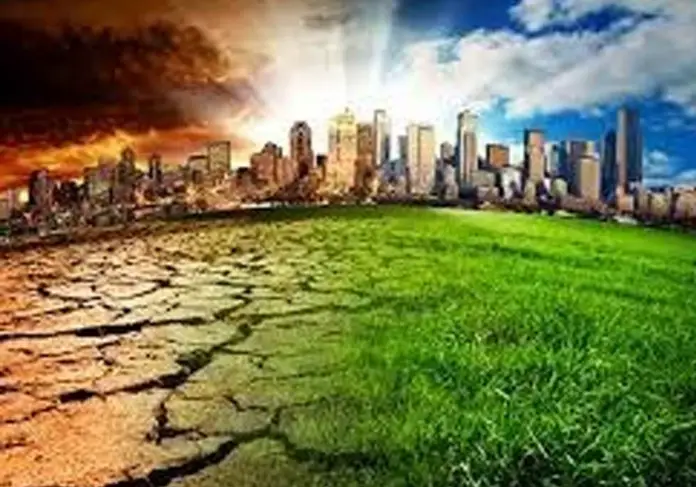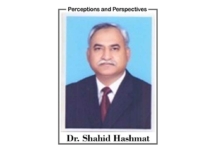“Why should there be hunger and deprivation in any land, in any city, at any table, when man has the resources and the scientific know-how to provide all mankind with the basic necessities of life? There is no deficit in human resources. The deficit is in human will”— Martin Luther King Jr.
The objective of ending hunger, achieving food security, improved nutrition and promoting sustainable agriculture is among the key goals envisaged by United Nations (UN). However, efforts for eradicating hunger, food insecurity and all forms of malnutrition have not been able to generate desired yields.
The climate related challenges, economic vulnerabilities economic shocks along with growing inequalities have added fuel to the fire of the world’s hunger and food insecurity. Further the regional conflicts and turbulent geo-political situation is expected to further increase the ongoing challenge as Ukraine and the Russian Federation supply 30% of wheat, 20% of maize and 80% of sunflower seed products in global exports.
The report on State of Food Security and Nutrition in the World by the Food and Agricultural Organization (FAO) of the UN estimated that between 702 and 828 million people in the world (i.e. 8.9% and 10.5% of the world population) faced hunger in 2021. During 2021, another 46 million people were affected by hunger as compared to 2020. Since 2019, a total of 150 million additional people are affected. These statistics dissipate any doubts about the fact that the world is moving in a counter direction in its efforts to eradicate hunger and food insecurity. The available data confirm that Africa bears the heaviest burden. One in five people in Africa i.e. 20.2% of the population was facing hunger in 2021 whereas in Asia, approximately one out of five people, 9.1%, in Latin America, 8.6% and less than 2.5% in Northern America and Europe are facing hunger and food insecurity.
Pakistan is also facing multi-dimensional challenges like rapid population growth and its urbanization, deteriorating purchasing power, high price fluctuations, inefficient food distribution and increased climatic challenges. State Bank of Pakistan’s (SBP) report, published in 2019, states that we are 8th in producing wheat, 10th in rice, 5th in sugarcane, and 4th in milk production—this indicates self-sufficiency in major staples. However, despite being an agricultural country, Pakistan is net importer of food items and import-dependence has been increasing for certain items. The difference between export and import of food items was negative by approximately, US$ 684 million in fiscal year (FY) 2017-18 which significantly widened to negative of US$ 2.5 billion in 2021-22 reflecting poor production and inefficient policy-making by our successive rulers.
According to SBP’s report, the import of food group’s items increased approximately to US$ 8 billion in FY 2021-22, constituting 11% of total import bill as compared to US$ 5.5 billion in FY 2017-18. Due to these factors, around 37% of the country’s households are “food insecure”, number of undernourished people in Pakistan has increased from 28.2 million in 2004-2006 to 37.2 million in 2019-2021. The cost of a healthy diet per diem has increased from US$ 3.40 in 2017 to US$ 3.68 in 2021. The rise in the prices of food items along with the anti-growth policies of successive rulers have brought people of Pakistan to a position where they are unable to afford a healthy diet.
The government needs to focus on underlying problems and work towards addressing muted pace of technological innovation in the field of agriculture. With the adoption of modern agricultural techniques Pakistan can increase its per yield production efficiently using less water and developing opportunities for harvesting new crops. Similarly, investment in infrastructure development can better connect rural centers with urban economy leading to cross border trade opportunities. A comprehensive policy framework with focus on bringing agricultural sector at par with global standards is need of the hour. Government must encourage financial sector to offer credit for agricultural production and processing through sector specific loan products like they have done for housing/real estate sector that can help farmers and market players to employ modern methods and increase their efficiency.
We also need an emergency response plan in order to handle the risks arising out of climate change challenges. Experts believe that there will be an increased variability in the weather with higher frequency of trials like floods, having direct impact on the agricultural sector, which needs mechanisms to cope and adapt. It is further projected that there will be immense pressure on limited surface as well as ground water resources.
The recent floods have been catastrophic for Pakistan where significant losses have taken place. The Islamic Relief Pakistan, a leading charity organization, has estimated that a total of 11,142,095 animals were lost during the floods all over the country. 21,500 animal shelters were damaged in Sindh alone. Moreover, 5.3 million acres of crop areas were damaged, with Sindh painting a glaring picture with 4.8 million acres of agricultural land under water while in Khyber Pakhtunkhwa, 154,000 acres of agricultural land got affected.
Pakistan is a major producer of rice and cotton, and both crops have been damaged due to floods and heavy rains while posing challenges for the upcoming wheat planting season. Apart from the floods and rains, Pakistan though an agricultural country, was dependent on import of food items to meet its needs. The climate change is a reality now. Many experts are of the view that in future, due to climate change, temperatures might surpass the required level for cultivation of crops that will severely impact expected yield. The universities as well as various research centers in Pakistan should work in finding ways for climate resistance to save crops. We are already dealing with water shortage, which is basic need of agricultural products. Now if the threat of climate changes is not dealt proactively, we will be entirely dependent on Israel and few other countries for our food supply as they have already begun working on this problem. We are going through the worst period of economic instability and in this fragile context, the management of climatic emergency with such magnitude, is a mammoth task. For meeting this national challenge, all political parties should join hands, above party lines and personal differences.
__________________________________________________
Dr. Ikramul Haq, Advocate Supreme Court, specialises in constitutional, corporate, media, ML/CFT related laws, IT, intellectual property, arbitration and international tax laws. He is country editor and correspondent of International Bureau of Fiscal Documentation (IBFD) and member of International Fiscal Association (IFA). He is Visiting Faculty at Lahore University of Management Sciences (LUMS) and member Advisory Board and Visiting Senior Fellow of Pakistan Institute of Development Economics (PIDE).
Abdul Rauf Shakoori, Advocate High Court, is a subject-matter expert on AML-CFT, Compliance, Cyber Crime and Risk Management. He has been providing AML-CFT advisory and training services to financial institutions (banks, DNFBPs, investment companies, money service businesses, insurance companies and securities), government institutions including law enforcement agencies located in North America (USA & CANADA), Middle East and Pakistan. His areas of expertise include legal, strategic planning, cross border transactions including but not limited to joint ventures (JVs), mergers & acquisitions (M&A), takeovers, privatizations, overseas expansions, USA Patriot Act, Banking Secrecy Act, Office of Foreign Assets Control (OFAC).







